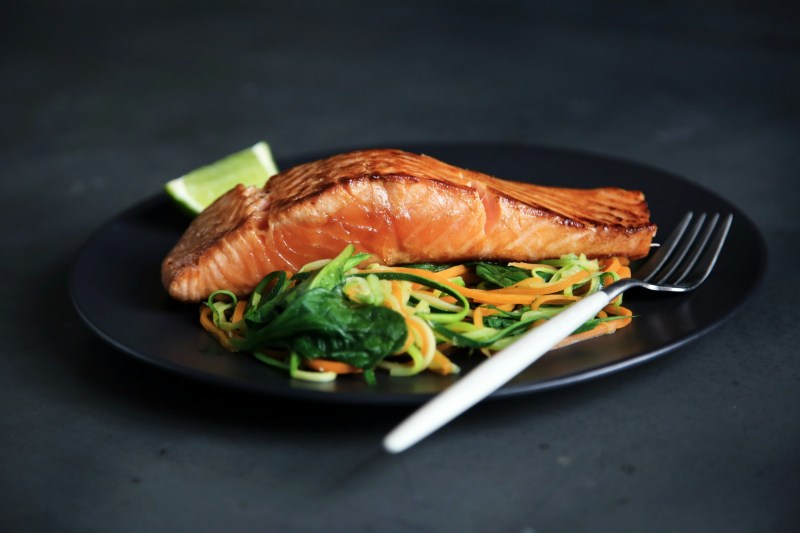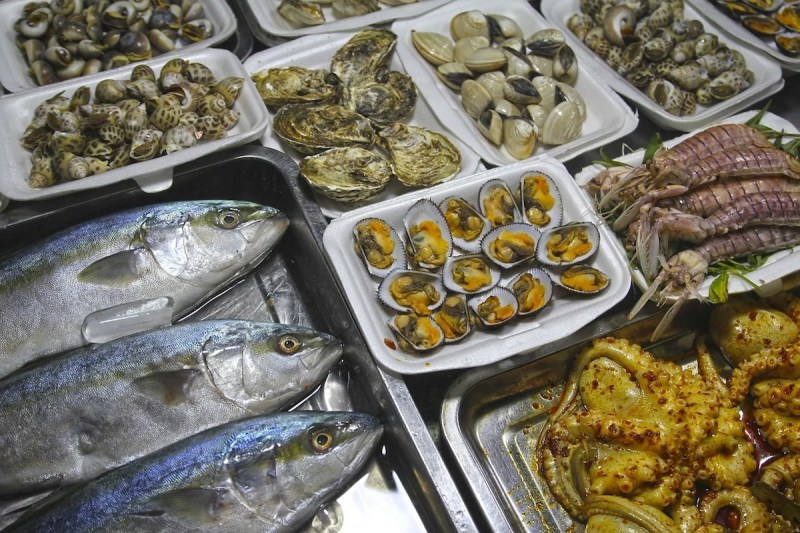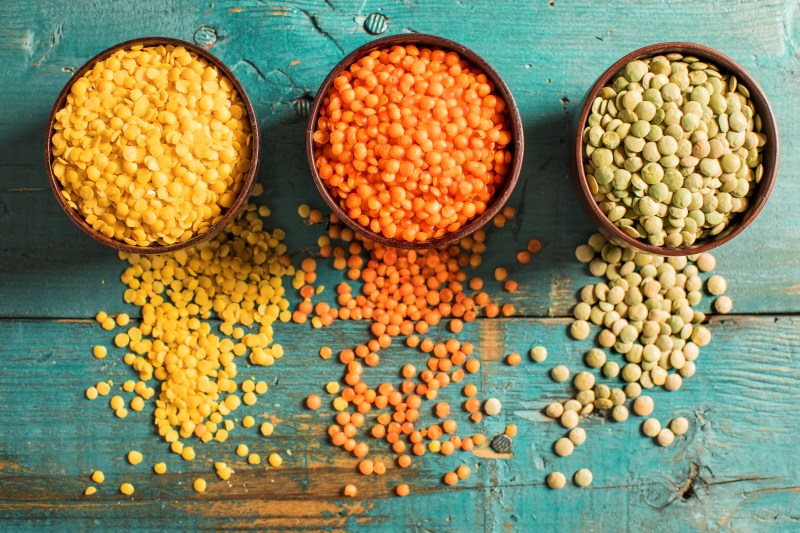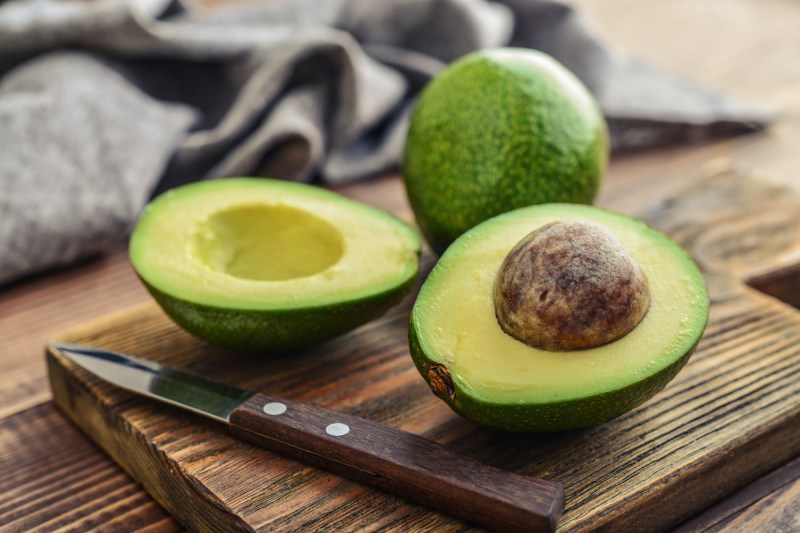
Although vitamins B6 and B12 act as the more popular members of the vitamin B family, eight altogether play an essential part in your overall health. Specifically, these vitamins include:
- Vitamin B1, or thiamin: Grows healthy, functioning cells.
- Vitamin B2, or riboflavin: A key component in energy production.
- Vitamin B3, or niacin: Assists in converting nutrients into energy.
- Vitamin B5, or pantothenic acid: Assists enzymes while they build and break down fatty acids.
- Vitamin B6, or pyridoxine: A coenzyme that supports immunity and maintains healthy brain function.
- Vitamin B7, or biotin: Helps with hair growth and healthy eyes, skin, and nails.
- Vitamin B9, or folate: Generates healthy red blood cells.
- Vitamin B12, or cobalamin: Assists in forming red blood cells and DNA and healthy brain and nerve cells.
All eight of these crucial vitamins should be included in a balanced diet.
What are the benefits of vitamin B?
Keep reading to learn about the benefits of vitamin B and later, what foods are high in vitamin B.

1. Healthy skin, hair, nails, and eyes
As you age, biotin helps regenerate cells. This regeneration renews skin, hair, and nail growth. Biotin also helps adults avoid brittle nails that easily break or tear. Riboflavin, a key component in energy production, also improves vision and keeps skin healthy.
2. Quality immune system
For your immune system to do its job and fight off infections, it needs oxygen. This comes from a steady supply of red blood cells. Vitamin B12 makes this happen, and without it, you can open yourself up to illness and disease because your immune system isn’t equipped to fight effectively.
3. Energy
B vitamins trigger energy more than caffeine and help maintain healthy energy levels consistently. You also need them to support brain function and cell metabolism. This helps you complete tasks, stay alert, and keep up with appropriate physical activity as you get older.
4. Healthy digestion
Your digestive tract benefits from how niacin and pantothenic acid produce needed gastric juices. Along with secreting bile, this is how your body breaks down and digests fats. Biotin also plays a key role in breaking down carbohydrates and proteins.
18 foods high in vitamin B

1. Leafy green vegetables
Raw or cooked spinach is one of the top foods rich in vitamin B and is easy to add to many dishes, such as eggs, salads, and smoothies. You can also use spinach as a meat, chicken, or fish side dish. Substitute collard and turnip greens with garlic and spices for added flavor.
2. Salmon
Salmon, at least twice a week, allows you to meet your vitamin B requirements easily. As an entree by itself, or adding salmon to eggs (in the form of lox), bagel sandwiches, salads, or burgers, this versatile fish provides a delicious variety to your menu or diet.
3. Eggs
Eggs deliver many needed nutrients without packing on extra calories. Just one egg contains 13 essential vitamins and minerals, plus it’s an excellent source of protein. Some ways to keep it interesting include poached, scrambled, or deviled varieties. Omelets allow you to add fresh vegetables to your breakfast dish. Runny eggs also contain a great deal of iron.
4. Milk

Milk by itself can be a great source of B vitamins. This includes whole or skim. If you’re a vegan, you can substitute almond, coconut, oat, or soy fortified with vitamins to get your daily requirements. Food items made from milk also count. For example, add cheese, sour cream, or cottage cheese as B-rich, tasty additions to any meal.
5. Liver
Organ meats don’t thrill everyone, but those who love them can get a variety of B vitamins from these choices. Beef, lamb, chicken, and pork organs are equally beneficial.
6. Shellfish
Add some variety to your meals by choosing oysters, mussels, or clams. These menu items are especially packed full of vitamin B12 and riboflavin.
7. Lean beef
Lean beef can easily add thiamin, riboflavin, niacin, vitamin B6, and vitamin B12 to your meals. Serve as an entree or added ingredient in tacos, burgers, chili, or pasta dishes. The possibilities are endless.
8. Beans and lentils

Legumes include beans or lentils and also contain lots of protein for people who don’t eat meat or fish. Add legumes to your soups, refry them for enchiladas, or keep them whole and uncooked in salads or rice bowls.
9. Poultry
Turkey and chicken serve as good sources of important B vitamins. For double the amount, choose light meat turkey, but you’ll enjoy almost six times more vitamin B if you like dark meat.
10. Yogurt
Yogurt made from skim or whole milk is an excellent source of these vitamins. You can eat it plain with whole berries on the side or add yogurt for a creamier smoothie. Frozen yogurt is also a lower-calorie alternative to ice cream for a tasty, beneficial treat.
11. Whole grains
Choose whole grains that haven’t been processed to benefit from essential nutrients and vitamins. For example, whole grain pasta is now becoming more widely available, or you can substitute brown rice and barley.
12. Breakfast cereals
Breakfast cereals, especially those made with bran, are naturally rich in vitamins and fortified with some extras. For example, if you use milk and dark berries, you’ll get almost everything you need for the day before it even begins.
13. Seeds

Hemp, flax, sesame, and sunflower seeds provide healthy, plant-based sources of pantothenic acid. Sprinkle them on salads, eat them plain with just a little salt, or spread some butter made from these seeds on whole grain bread.
14. Nuts
Peanuts, almonds, and walnuts add some biotin to your diet in a tasty way. Peanut or almond butter makes smoothies and celery taste delicious. Walnuts mixed with apples or as a salad topping add some biotin and protein.
15. Avocados

Avocados pack a punch with many nutrients, including vitamin B6 and folate. Add them to rice bowls, salads, tacos, or toast.
16. Oatmeal
Oats provide a delicious, healthy whole grain option and plenty of B vitamins. Eat oatmeal warmed up with milk, honey, and raisins. Or you can add oats to smoothies or cookies for added benefit.
17. Bananas
Bananas are a widely known source of potassium, but they also contain vitamin B6, which is important for brain function, red blood cell production, and immune function. One medium banana contains about 0.4 milligrams of vitamin B6, which is about 25% of the Daily Value for vitamin B6. Add banana slices to your morning oatmeal and you can double up your vitamin B foods for the day.
18. Nutritional yeast
Unfortified yeast already contains natural B vitamins, minus B12. If you purchase fortified nutritional yeast, you can benefit from synthetic B vitamins, including B12. Vegans add it to dishes to replace cheese. It’s also a tasty way to flavor popcorn, casseroles, and salads.
The bottom line

Getting enough vitamin B is important, especially if you’re over 65 or take certain medications. Strict vegans and anyone recovering from bowel-removal surgery need to make sure they’re getting enough of the nutrients in vitamin B.
You may be in danger of a vitamin B deficiency if you:
- Constantly feel tired
- Experience blurred vision
- Suffer from a drastic mood changes
- Become more pale than usual
- Get jaundiced skin
- Feel tingly in your feet or hands
Don’t ignore these symptoms. Vitamin B deficiencies might lead to anemia or nerve damage, so be sure to see a doctor and add some healthy high vitamin B foods to your diet right away.



